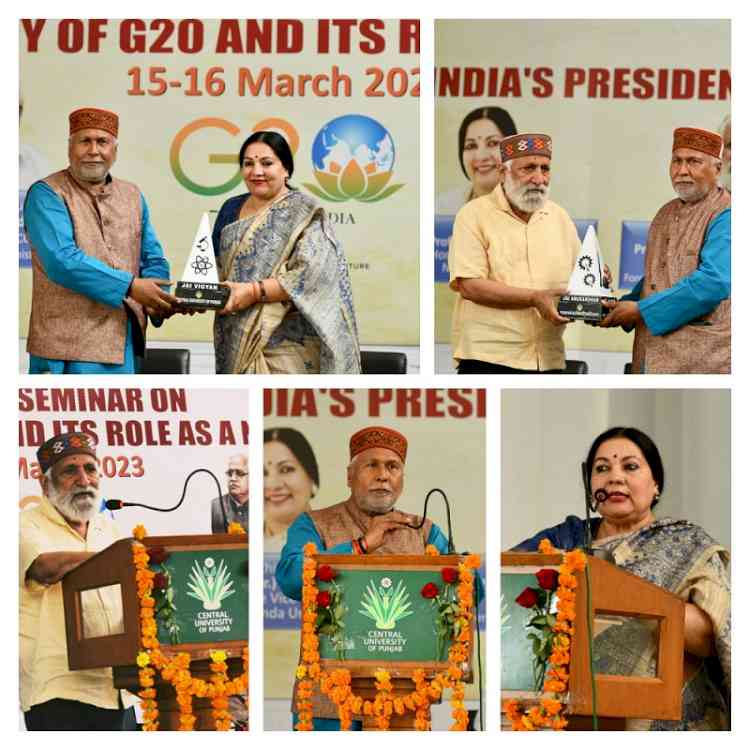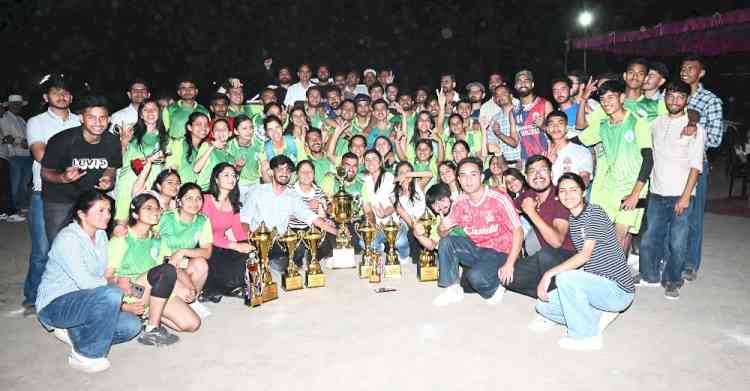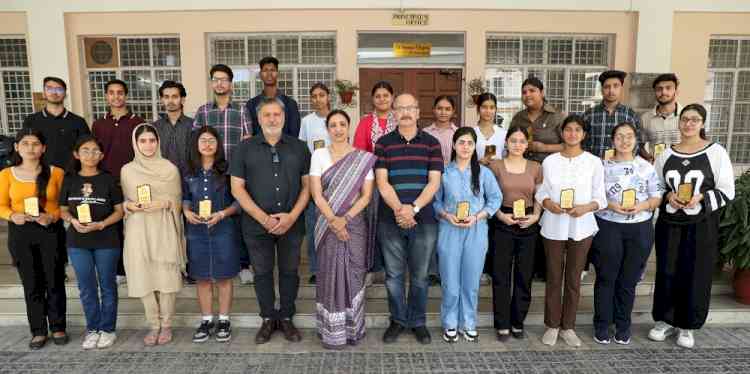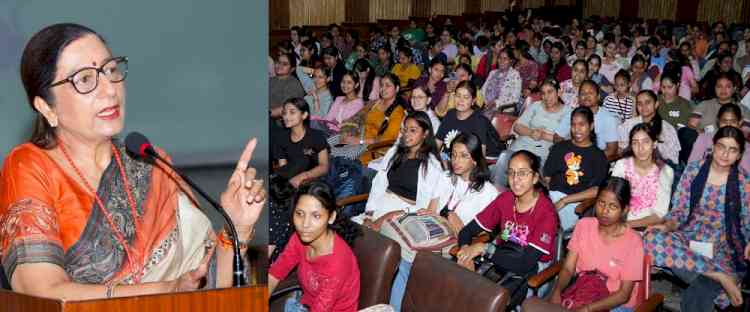2-Day ICSSR sponsored national seminar on “India’s Presidency of G20 and its role as a Nation Initiator” commenced at CUPB
The fusion of Science and Technology from the west and spiritualism from Indian culture would be the best solution to the problems that the world is facing today, as it can only bring universal brotherhood at the world level – Prof. R.P. Tiwari, Vice-Chancellor, Central University of Punjab

Bathinda March 15, 2023: The Central University of Punjab, Bathinda (CUPB), under the patronage of Vice-Chancellor Prof. Raghavendra P. Tiwari, is organizing a ICSSR sponsored two-day National Seminar on "India’s Presidency of the G20 and its role as a Nation Initiator" on March 15–16, 2023. The event is being held as part of India’s Presidency of the G20, the intergovernmental forum comprising 19 countries and the European Union.
During the inaugural ceremony held on Wednesday, Prof. Sunaina Singh, Vice-Chancellor, Nalanda University, graced the occasion as the Chief Guest. Prof. Kuldeep Chand Agnihotri, Former Vice-Chancellor, Central University of Himachal Pradesh and Former Advisor to Union Ministry of Culture, participated as the Guest of Hoour.
At the outset, Dr. Nishtha Ksushiki, Convener, welcomed the participants and introduced the esteemed guests. While elaborating on the Seminar theme, Dr. Bawa Singh, Dean and HoD, Department of South and Central Asian Studies, mentioned that the Group of Twenty (G-20) is the premier intergovernmental forum for international economic cooperation. India holds the Presidency of the G20 from 1 December 2022 to 30 November 2023.
Addressing the gathering of faculty, scholars and students, Chief Guest Prof. (Dr.) Sunaina Singh, Vice Chancellor, Nalanda University, said that various multilateral organizations such United Nations, World Trade Organization, World Bank, UNICEF and others are working to establish peace, harmony, and provide equitable opportunities to the human civilization. But still, the world faces challenges related to global warming due to climate change, concentration of power and wealth, etc. The G-20 presidency of India is a unique opportunity for our country, as India has many useful lessons to share with the world related to living a harmonious lifestyle with nature, which might help the world come together to live in peace and adopt a harmonious lifestyle. India’s outlook has always been that everybody should benefit from advancements rather than hoard knowledge. Even during the coronavirus pandemic, India developed vaccines, part of which were given to the outside world. Exhorting the students to learn, Prof. (Dr.) Sunaina Singh said that one of the hallmarks of the G-20 presidency is the coming together of the youth of the country to discuss multilateralism. India is known for its knowledge and wisdom, and the G-20 presidency of India would help in spreading India’s message to the world: "One earth, One family, One future."
Delivering special remarks, Guest of Honor Prof. (Dr.) Kuldeep Chand Agnihotri, Former VC, CUHP, and Former Advisor to the Union Minister of Culture, said that the G-20 is a forum for India to share two core values of its culture with the world: Vasudhaiva Kutumbakam and Sarve Bhavantu Sukhinah (happiness and peace for all). He said that the modern term "global village" is different from the Indian concept of Vasudhaiva Kutumbhkum, and the latter is supreme as Indian concepts are beyond any kind of boundaries, especially economic ones. Prof. Agnihotri said that Indian culture, based on the philosophy of Neti Neti, inspires entire human civilizations to a continuous search for real truth and to always believe in adding on to good things. Our Sanatani culture is a culture which believes in continuity and under G-20’s Presidency the citizens of India need to spread our cultural traits to other countries to elevate human civilization and make this world a peaceful place to live for living creatures.
Speaking on this occasion, Vice Chancellor Prof. Raghavendra P. Tiwari said the intended purpose of this National Seminar is to engage the youth on this glorious occasion of India’s G20 Presidency and sensitize them to the deliberations related to sub-themes including Reforming Multilateral Institutions; Securing Technologies; Sustainable Environment & Agriculture; and Equitable Global Economic Recovery & South-South Development Cooperation. Prof. Tiwari exhorted that the fusion of Science and Technology from the west and spiritualism from Indian culture would be the best solution to the problems that the world is facing today, as it could only bring universal brotherhood at the world level. He said the universities of our nation have a bigger role to play in India’s G-20 presidency, as education plays a very important role in debating and discussing important concerns of the world.
Prof. Tiwari also mentioned that, as per the study conducted by foreign scholars, the contribution of India to the global GDP was around 30% before the onset of British rule. It was reduced to just 2 percent when the British left India, implying the entire production system suffered huge losses. The present government is making all efforts to restore the production system and make India AtmaNirbhar. Towards the end of the inaugural session, Prof. B.P. Garg, Controller of Examinations, and Registrar (O) gave a formal vote of thanks.
On day one, the first technical session of the National Conference, themed "Reforming Multilateral Institutions for Enhancing Equity and Transparency," was held in the second half, with Ambassador Virendra Gupta (Retd. IFS), Prof. A.D.N. Bajpai, Vice-Chancellor, Atal Bihari Vajpayee University, Bilaspur, and Prof. Anand Pawar, Vice-Chancellor (Officiating), RGNUL, Punjab participating as distinguished guests. The dignitaries deliberated on The need for Reforming the Multilateral Institutions for a Stable Work Order; Role and Relevance of Spiritual Economics in Global Peace: A way ahead of G-20; and Revisiting International Law for World Peace and Importance of India’s Value System.
The second day's line-up of the program comprises of three technical sessions and a concluding session during which dignitaries will deliberate on the sub-theme of this seminar.


 City Air News
City Air News 










